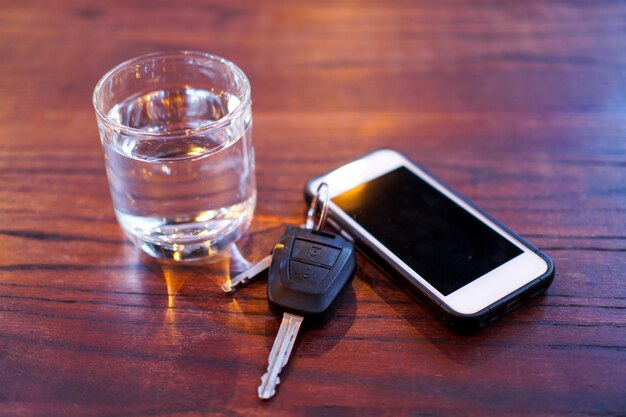Driving Without Insurance: What You Need to Know
Driving a car is a rite of passage and a daily necessity for many. However, the complexities of legally driving can extend beyond just getting a license or following road signs. One major consideration is insurance. Can you drive a car without insurance? This question may seem straightforward, but its answer is layered, affected by laws that vary widely depending on where you are and what your situation entails. Let's break it down to its essentials, explore implications, and understand your obligations and options.
🎯 The Legal Landscape of Driving Without Insurance
Understanding the Basics
Across the globe, most jurisdictions require car insurance. The primary reason is to ensure that if an accident occurs, there is a financial mechanism available to cover damages or injuries. In most places, driving without insurance is not just frowned upon; it's illegal. However, the specifics can vary considerably:
Mandatory Minimums: Typically, the law dictates a minimum level of liability insurance you must carry. This is to cover other people’s expenses in accidents you cause.
Penalties and Fines: Driving uninsured can lead to hefty fines, points on your driving record, and even license suspension. In severe cases, it could lead to impoundment of your vehicle or incarceration.
Regional Variations
Some areas have stricter regulations than others. For instance:
United States: Nearly all states require liability insurance, but the coverage limits can differ. Some states offer alternatives like a surety bond or cash deposit with the state as a substitute for traditional insurance.
Europe: European countries generally enforce stronger penalties for uninsured driving—fines could be significantly higher, and the legal repercussions might involve more rigorous enforcement actions.
Developing Nations: Enforcement might be less stringent in some developing countries, but financial and legal risks remain significant.
Alternatives to Traditional Insurance
In rare instances, there are alternatives, but these are typically complex and can’t be seen as blanket solutions:
Self-Insurance: Available to owners of a large fleet of vehicles or businesses, self-insurance involves demonstrating to the state that you have the financial resources to cover damages.
Low-Income Options: Some regions offer government-sponsored programs to make insurance more affordable for low-income drivers.
🛠️ What Happens If You're Caught Driving Without Insurance?
Consequences vary but generally include:
Fines: Legally enforced penalties can vary widely, costing hundreds of dollars.
License and Registration Suspension: This is common, and reinstatement often requires fulfilling multiple conditions, such as providing proof of future insurance and paying fines.
Increased Future Premiums: Once caught without insurance, any subsequent insurance you secure will likely be more expensive.
Accident Scenarios
The complications multiply if you're involved in an accident while uninsured. You're liable for all damages, and lack of proper coverage can lead to financial ruin. Additionally, other penalties may increase substantially if an accident is involved, particularly if serious injury or damage occurs.
🚦 Exploring Your Options: Meeting Insurance Requirements
Securing Affordable Insurance
Ensuring compliance without breaking the bank is a priority for many. Here are strategies to consider:
Shop Around: Comparing different providers can yield savings. Look for insurers with good reputations and competitive rates.
Discounts: Inquire about discounts for safe driving, bundling policies, or installing safety features in your car.
Usage-Based Insurance: Some companies offer insurance based on your driving habits, which can be economical if you drive safely.
Adjusting Coverage Levels: Evaluate your needs and consider carrying only required coverage to start, increasing coverage as your budget allows.
Particular Circumstances and Considerations
Teen Drivers: Teens typically face higher premiums. Adding them to a family plan can sometimes reduce costs.
High-Risk Drivers: After an infraction like driving uninsured, you may be classified as high-risk. Specialized plans are available but often at a higher cost.
📌 Key Takeaways for Responsible Driving
Here’s a handy summary of practical tips related to driving and insurance compliance:
- 🛡️ Always have proof of insurance when driving. This can prevent potential legal complications.
- 📋 Regularly review and update your policy. Circumstances change, so ensure your coverage meets your current needs.
- 💰 Seek continuous coverage. Lapses can result in increased rates. Set reminders for renewal dates.
- ⚖️ Understand regional requirements. Familiarize yourself with local laws, particularly if you’re traveling out of state or country.
- 👨👩👧 Evaluate family options. Multi-car and family plans often offer significant savings.
🚘 Impact of Uninsured Drivers on Society
When uninsured drivers are involved in accidents, the fallout extends beyond personal legal and financial repercussions:
Financial Strain on the System: The costs associated with accidents involving uninsured drivers often have to be absorbed by state funds or insurance companies, leading to higher premiums for everyone.
Public Safety Risk: Without insurance, drivers might be more tempted to flee the scene of an accident, posing additional public risks and complicating justice.
🌟 Conclusion: Driving Toward Knowledge and Compliance
The question "Can you drive a car without insurance?" might appear simple, but it unlocks a complex web of legal, financial, and ethical considerations. While there are minimal circumstances where driving without insurance might seem possible—such as under self-insurance or legal alternative programs—they are rare and fraught with risk.
Insurance not only protects you but also supports the broader societal infrastructure. It's a crucial part of responsible driving. Understanding your local laws and exploring your options for affordable insurance coverage are essential steps necessary to minimize risks and fulfill your legal obligations behind the wheel.
Make smart, informed choices about car insurance to ensure both your safety and peace of mind, as well as that of others on the road.

Related Topics
- a Affordable Car Insurance
- a Car Insurance Companies
- a Car Insurance Company
- a Cheap Car Insurance
- a Max Car Insurance
- Are Car Insurance Rates Going Up
- Are Electric Cars More Expensive To Insure
- Are Health Care Insurance Premiums Tax Deductible
- Are Hybrid Cars More Expensive To Insure
- Are Insurance Premiums Tax Deductible For Obama Care
